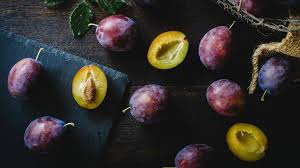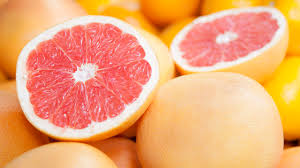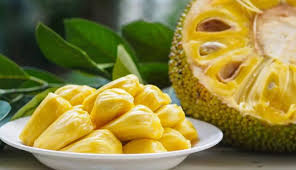Content of the Article
Mango fruit (Mangifera indica) is called the king of fruits in some parts of the world. The mango tree is native to India and Southeast Asia. It has been cultivated for more than 4000 years. There are hundreds of varieties, each with its own unique taste, shape, size and color. It is a delicious fruit and has an impressive nutrient profile. The benefits of mango are also due to its rich nutritional content. The benefits of mango are that it strengthens immunity, improves digestion, supports eye health and reduces the risk of cancer formation.

This fruit is not only delicious, but also has an impressive nutritional profile.
Mango Nutrition Value
Although mango is a low-calorie fruit, it contains important nutrients. The nutritional value of one cup (165 grams) of sliced mango is as follows:
- Calories: 99
- Protein: 1.4 grams
- Carbs: 24.7 grams
- Fat: 0.6 grams
- Fiber: 2.6 grams
- Vitamin C: 67% of the Reference Daily Intake (RDI)
- Copper: 20% of the RDI
- Folate: 18% of the RDI
- Vitamin B6: 11.6% of the RDI
- Vitamin A: 10% of the RDI
- Vitamin E: 9.7% of the RDI
- Vitamin B5: 6,5% of the RDI
- Vitamin K: 6% of the RDI
- Niacin: 7% of the RDI
- Potassium: 6% of the RDI
- Riboflavin: 5% of the RDI
- Manganese: 4,5% of the RDI
- Thiamine: 4% of the RDI
- Magnesium: 4% of the RDI
Also a small amount phosphoruspantothenic acid calcium, selenium ve iron It contains.
Benefits of Mango

- Contains high levels of antioxidants
Mango fruit contains polyphenols and plant compounds that act as antioxidants. Mangiferin, catechins, anthocyanins, quercetinThere are over a dozen different types, such as kaempferol, rhamnetin, benzoic acid.
AntioxidantsIt is important because it protects cells against free radical damage. Free radicals are highly reactive compounds that can bind to and damage cells. They cause aging and increase the risk of chronic diseases.
Mangiferin, which is the most popular among the polyphenols, is called a super antioxidant because it is especially powerful. It protects against free radical damage associated with cancers, diabetes and other diseases.
- Strengthens immunity
One of the benefits of mango is that it is a good source of immune-boosting nutrients. A one-cup (165 grams) serving provides 10% of the daily requirement for vitamin A. Because it fights infections Vitamin A essential for a healthy immune system. Not getting enough vitamin A causes infection.
A good source of vitamin C, mango helps the body produce disease-fighting white blood cells. This helps cells work more effectively and improve the skin's defenses.
Mango fruit also contains folate, vitamin K, which supports immunity. Vitamin E and a variety of B vitamins.
- Good for heart health
Mango, Contains nutrients that support heart health. For example, regulating the healthy beating of the heart magnesium and potassium. In this way, it relaxes blood vessels and raises low blood pressure levels. It also lowers blood cholesterol, triglyceride and free fatty acid levels.
- Improves digestion
Mango has several properties that are beneficial for digestive health. It primarily contains a group of digestive enzymes called amylase. Digestive enzymes break down large food molecules for easy absorption. Amylases break down complex carbohydrates into sugars such as glucose and maltose. These enzymes are more active in ripe mangoes, so the ripe ones are sweeter than the unripe ones.
Also, because the mango fruit contains plenty of water and fiber, it relieves digestive problems such as constipation and diarrhea.
-
It is beneficial for eye health
Mango is full of nutrients that support eye health. Two key antioxidants for eye health lutein and zeaxanthinis Inside the retina, lutein and zeaxanthin absorb excess light, acting as a natural sunscreen. It also protects the eyes against harmful blue light. Mango fruit is also a good source of vitamin A, which supports eye health.
- Prevents cancer
One of the benefits of mango fruit is its ability to prevent cancer. That's because it's high in polyphenols, which can have anticancer properties. Polyphenols protect from oxidative stress, which is linked to many types of cancer. The polyphenols in the fruit destroy various cancer cells such as leukemia, colon, lung, prostate and breast cancer.
Benefits of mango for skin
- Mango contains high levels of vitamin C, which supports skin health. This vitamin is necessary to make collagen. collagen It gives vitality to the skin and fights sagging and wrinkles.
- It prevents blackheads.
- It clears acne.
- It heals inflammation in the skin.
- Removes dead skin cells.
- It is a natural moisturizer for dry skin.
- It reduces dark spots on the skin.
Benefits of mango for hair
- Mango is a good source of vitamin A, which promotes hair growth and sebum production.
- Apart from vitamins A and C, mango is high in polyphenols that act as antioxidants. These antioxidants protect hair follicles against oxidative stress.
- It acts as a natural conditioner.
- It removes dandruff.
- It prevents thinning of hair.
- Repairs split ends of hair.
Does Mango Lose Weight?
Eating mango in moderation is a healthy addition to your diet. Polyphenols in mango reduce the amount of fat created in the body and cause fat cells to shrink. In this way, it helps to lose weight by increasing fat burning. It is also a low-calorie fruit. Thanks to the fiber it contains, it makes you feel full. So, among the benefits of mango, we can take its slimming property.

How to Eat Mango?
Mango is a delicious and versatile food. Although it is difficult to remove the hard skin and separate the mango fruit core from the flesh, you can easily slice it by cutting vertical slices with the help of a knife. Here are some ways to eat mango:
- Add to smoothies.
- Cut into cubes and add to fruit salads.
- Slice and serve with other tropical fruits.
- Slice and add to quinoa salad.
Remember that mango is sweet and contains more sugar than many other fruits. Therefore, it should be consumed with caution. Try not to consume more than two bowls (330 grams) a day.
Can Mango Peel Eat?
The outer skin of fruits and vegetables acts as a protective cover for the soft and tender meat inside. The majority of these peels are edible, though often thrown away. It's packed with nutrients like fiber, vitamins, minerals, and powerful plant compounds.
Mango is one of the peeled fruits. Some people state that it should be consumed instead of throwing away the very nutritious peel.

Benefits of Eating Mango Peel
Until the mango is fully ripe, the outer peel is green. When ripe, the bark turns yellow, red or orange, depending on the type.
Mango has many nutritional benefits. Studies show that the bark is loaded with polyphenols, carotenoids, fiber, vitamin C, vitamin E and various beneficial plant compounds. The peel of this sweet fruit is high in triterpenes and triterpenoids. These compounds have anticancer and antidiabetic properties.
Mango peel is also packed with fiber, which is important for digestive health and regulating hunger. In fact, the fiber makes up 45-78% of the total weight of the shell.
The Harm of Eating Mango Peels
Although mango peel contains a significant number of nutrients, it also carries risks.
- The bark of the fruit contains urushiol, organic chemicals found in poison ivy and poison oak. It can cause allergic reactions in sensitive individuals.
- There may be pesticide residue on the mango peel.
- While the mango fruit is sweet, soft and pleasant to eat, the texture and taste of the peel is poor. It has a thick crust, is difficult to chew, and tastes slightly bitter.
Should you eat the peel of the mango?
Mango peel is edible. It is packed with important nutrients and contains powerful plant compounds. However, consider the potential benefits and the aforementioned disadvantages such as hard texture, bitter taste, and potential pesticide residues or allergic reactions.
The same nutrients in mango peel are present in many other fruits and vegetables. So it is not necessary to tolerate the unpleasant taste of the bark to reap the potential health benefits.

Benefits of Mango Leaf
Did you know that the mango leaf is eaten as well as its peel? Fresh green mango leaf is very delicate. For this reason, it is cooked and eaten in some cultures. The leaves are also used to make tea and supplements, as they are very nutritious. The benefits of mango leaf are as follows;
- Mango leaf contains plant compounds such as polyphenols and terpenoids.
- Strengthens immunity.
- It reduces inflammation in the body with its anti-inflammatory properties.
- It helps treat or prevent conditions such as obesity, diabetes, heart disease, and cancer.
- It protects from diseases such as Alzheimer's or Parkinson's.
- It prevents the accumulation of fat in the cells.
- It helps in the treatment of diabetes.
- It has anticancer potential.
- It treats stomach ulcer.
- Mango leaf tea is good for anxiety.
- It supports the treatment of kidney stones and gallstones.
- Relieves respiratory problems.
- Heals burn wounds.
- Delays skin aging
- Increases collagen production.
- It supports hair growth.
- Protects hair follicles from damage.
How to Use Mango Leaves?
While the mango leaf can be eaten fresh, it is most commonly drunk as a tea. To prepare the leaf's tea, boil 150-10 fresh mango leaves in 15 mL of water.
Mango leaf is also available as powder, extract and supplement. The powder can be diluted with water and drunk, used in skin ointments, or sprinkled into bath water.
Side Effect of Mango Leaf
Mango leaf powder and tea are considered safe for human consumption. Limited studies in animals have determined no adverse effects, although human safety studies have not been performed.











Besonder insiggewwnd!! Baie dankie!